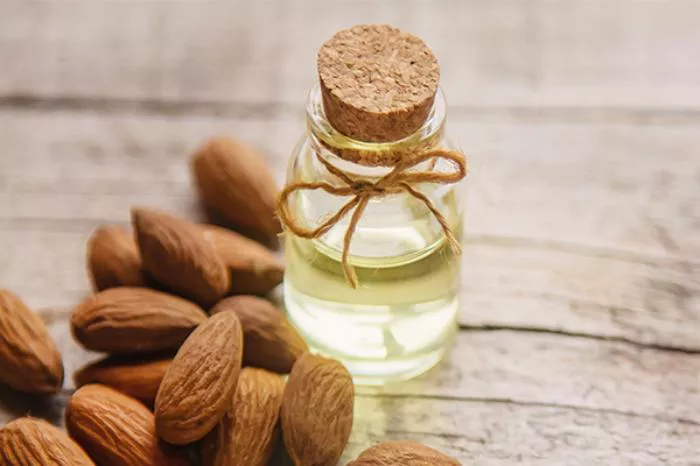Dandruff is a common scalp condition characterized by flaking and irritation. It can be caused by various factors, including dry skin, sensitivity to hair products, and conditions like seborrheic dermatitis. While many commercial shampoos claim to treat dandruff, natural oils have gained popularity for their soothing and nourishing properties. This article explores the best oils for combating dandruff, how they work, and tips for incorporating them into your hair care routine.
Understanding Dandruff
What Causes Dandruff?
Dandruff can stem from multiple sources, including:
Dry Skin: Lack of moisture can lead to flakiness.
Seborrheic Dermatitis: A condition causing red, greasy patches and white or yellow flakes.
Fungal Growth: Malassezia, a yeast-like fungus, can irritate the scalp.
Sensitivity: Reactions to hair care products can exacerbate flaking.
Skin Conditions: Conditions like psoriasis and eczema can also lead to dandruff.
Symptoms of Dandruff
Common symptoms include:
Flaking and itching on the scalp.
Red or irritated skin.
Oily patches on the scalp and hair.
Benefits of Using Oils for Dandruff
Using oils can provide several benefits for dandruff sufferers:
Moisturization: Oils help hydrate the scalp, reducing dryness and flakiness.
Anti-inflammatory Properties: Many oils have natural anti-inflammatory properties that can soothe irritation.
Antifungal Effects: Certain oils can inhibit the growth of fungi like Malassezia.
Nourishment: Oils provide essential nutrients that promote overall scalp health.
Improved Blood Circulation: Massaging oils into the scalp can enhance blood flow, promoting healthier hair growth.
Top Oils for Dandruff Relief
1. Coconut Oil
Benefits: Coconut oil is rich in lauric acid, which has antimicrobial properties. It deeply penetrates the hair shaft and scalp, providing moisture and reducing dryness.
How to Use:
Warm a small amount of coconut oil.
Massage into the scalp and hair.
Leave it on for at least 30 minutes or overnight, then wash with a mild shampoo.
2. Tea Tree Oil
Benefits: Tea tree oil is well-known for its antifungal and antibacterial properties. It can effectively combat the Malassezia fungus associated with dandruff.
How to Use:
Mix a few drops of tea tree oil with a carrier oil (like coconut or olive oil).
Apply to the scalp, focusing on problem areas.
Leave it on for 20-30 minutes, then wash out.
3. Jojoba Oil
Benefits: Jojoba oil closely resembles the natural oils produced by the scalp, making it an excellent moisturizer. It helps balance oil production and can soothe irritation.
How to Use:
Apply jojoba oil directly to the scalp.
Massage gently for several minutes.
Let it sit for an hour or overnight before shampooing.
4. Olive Oil
Benefits: Olive oil is rich in antioxidants and healthy fats. It can help moisturize the scalp and reduce flakiness.
How to Use:
Warm olive oil slightly.
Massage it into the scalp and hair.
Leave it on for at least an hour, then wash with shampoo.
5. Lavender Oil
Benefits: Lavender oil has antifungal properties and can help soothe an itchy scalp. Its pleasant scent also promotes relaxation.
How to Use:
Mix a few drops of lavender oil with a carrier oil.
Apply to the scalp and massage gently.
Leave it on for 30 minutes, then wash out.
6. Peppermint Oil
Benefits: Peppermint oil stimulates blood circulation and can provide a cooling sensation that relieves itching.
How to Use:
Combine peppermint oil with a carrier oil.
Massage into the scalp.
Leave it on for 30 minutes before shampooing.
7. Argan Oil
Benefits: Argan oil is rich in vitamin E and fatty acids, making it an excellent choice for moisturizing the scalp and reducing dryness.
How to Use:
Apply a few drops of argan oil to the scalp.
Massage in gently.
Leave it on for a couple of hours or overnight, then wash.
How to Incorporate Oils into Your Hair Care Routine
1. Pre-Shampoo Treatment
Applying oil before shampooing can help prepare your scalp and hair for cleansing. This method adds moisture and reduces the drying effects of shampoo.
2. Scalp Massage
Regularly massaging oils into the scalp can improve blood circulation and enhance overall scalp health. Use circular motions to stimulate hair follicles.
3. Overnight Treatments
For deep conditioning, apply oil to your scalp and hair before bed. Cover with a shower cap or towel to prevent staining your pillow. Wash out in the morning.
4. DIY Hair Masks
Combine oils with other natural ingredients like honey, yogurt, or aloe vera to create nourishing hair masks. These can provide added benefits for your scalp and hair.
Precautions and Tips
1. Patch Test
Always perform a patch test before using a new oil, especially if you have sensitive skin. Apply a small amount to your inner wrist and wait 24 hours to check for reactions.
2. Dilution
Essential oils, like tea tree or peppermint, should be diluted with a carrier oil to prevent skin irritation.
3. Avoid Overuse
Using too much oil can lead to greasiness. A small amount is usually sufficient for effective treatment.
4. Consult a Professional
If dandruff persists despite treatment, consult a dermatologist. They can provide a proper diagnosis and recommend effective treatments.
Conclusion
Dandruff can be a frustrating condition, but using natural oils can provide significant relief. Oils like coconut, tea tree, jojoba, olive, lavender, peppermint, and argan offer various benefits that can improve scalp health and reduce flakiness. By incorporating these oils into your hair care routine, you can promote a healthier scalp and enjoy beautiful, dandruff-free hair. Remember to be patient and consistent with your treatments for the best results.
Related topics:
- Which Oil Stimulates Hair Growth? A Comprehensive Guide
- The Best Oils to Cure Dandruff: Natural Solutions
- Why Is My Hair So Frizzy After I Shower? Causes and Solutions


